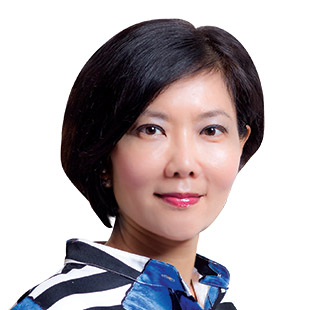
Nursing Makes an Impact
Professor Chia-Chin Lin
|
Director |
Alice Ho Miu Ling Nethersole Charity Foundation Professor in Nursing
Nursing is a critical profession that makes contributions to patient care, identifies and acts on issues of pre-eminent importance in public health, provides vital input and leadership in policymaking, and carries the torch by training the next generation of nurses and nurse leaders. Without a doubt, nurses are making a significant impact. But their important work has faced strong headwinds in recent years, particularly from climate change and new technologies such as AI and robots. Yet nurses have quickly adapted to these challenges. The current issue of Nurseletter showcases how nursing is leading the way on important issues facing our field and the world.
Dr John Fung Tai-chun, our Senior Lecturer at HKU School of Nursing, for instance, has made ground-breaking innovations in teaching and learning that are having an impact not only in nursing but other fields. His 360 VR system is used within the School and the Faculty of Arts, and it is being applied creatively by including peer teaching and a detailed debriefing programme that consolidates learning. Dr Fung has been keen to adopt new technologies because they enrich learning and prepare students to apply these tools in their future practice. His work earned him the HKU Outstanding Teaching Award for 2023 – he was the sole recipient across the University – as well as the HKU Teaching Innovation Award (Teams).
The School has also been at the forefront of determining nurses’ role in addressing and mitigating global climate change. Associate Professor Patsy Chau Pui-hing led the Nursing and Midwifery Discipline Group of Universitas 21 (U21) to conduct a cross-sectional, international survey on the preparedness of nurses for climate change. The group also included nursing academics from mainland China, Chile, New Zealand, South Africa and the United States. The survey found that more than half of respondents reported that climate change has affected their nursing practice, such as increasing the number of patients and complexity of care required. The survey is ongoing, and it is hoped the results will be a starting point for building greater resilience and involvement against climate change by nurses.
Apart from members of the School who have demonstrated impacts through their leadership and scholarship, many nurses are already well-positioned to lead on other issues. Dr Danny Tong Wah-kun, the Chief Manager (Nursing) / Chief Nurse Executive at the Hospital Authority’s Head Office, shares his reflections on how nursing leaders elevate the quality of healthcare and contribute to clinical excellence through advanced nursing education, research and practice.
To achieve a broader impact on the nursing profession through our deep engagement with partners from around the world, HKU School of Nursing organised the 13th Hong Kong International Nursing Forum on the theme of “Nurses’ Impact on Planetary Health”, which attracted more than 400 delegates from more than 15 counties and regions. We also hosted the 27th East Asian Forum of Nursing Scholars which attracted more than 1,400 overseas and local delegates on the theme “Generating Impact through Doctoral Nursing Education”.
These big events and activities all help to generate ideas and build networks that advance nursing practice, education and research. Ultimately, they are there to support the more profound impact that nursing has on a daily basis. Nurses can directly affect and improve the quality of people’s lives, however long or short they may be. Consider, for instance, that nurses initiated palliative care in many countries. Our legacy, and our impact, is in being able to improve patient care through leadership, interpersonal communications and interprofessional collaboration. These things cannot be replicated by technologies. They are qualities only we, as humans and trained professionals, can convey.





